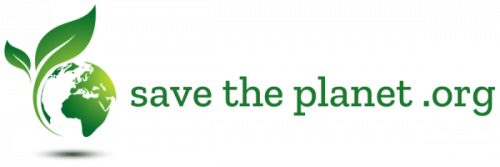Is the WHO pushing a Globalist agenda?
Is the WHO pushing a globalist agenda? The World Health Organisation (WHO), the United Nations’ specialised health organisation, is under increased scrutiny for its global health policies and apparent alignment with a globalist agenda. Critics claim that the World Health Organisation (WHO) is unduly influenced by strong organisations such as the World Economic Forum (WEF) and private enterprise, jeopardising its neutrality and putting profit before public health.
The WHO-WEF Connection:
The WHO and the WEF share a tight and interconnected relationship. The World Economic Forum (WEF), a prominent multinational organisation of economic, political, and intellectual elites, has actively shaped global health priorities. For example, the WEF’s “Great Reset” project, initiated during the COVID-19 pandemic, called for a thorough overhaul of global systems, including healthcare. Critics believe that this effort, with its emphasis on public-private partnerships and technical solutions, reflects a globalist perspective that puts corporate interests ahead of national sovereignty and individual liberty.
Evidence of Collaboration:
- Shared Personnel: Several individuals have held high-level roles in both organisations, raising concerns about potential conflicts of interest. For example, Dr. Richard Hatchett, CEO of the Coalition for Epidemic Preparedness Innovations (CEPI), a public-private partnership funded by governments and private foundations, previously worked as Deputy Director for Global Health Security at the National Security Council during the Obama administration.
- Joint Initiatives: The World Health Organisation and the World Economic Forum have partnered on a number of initiatives, including the Global Health and Healthcare Platform, which aims to “improve the quality and affordability of healthcare for all.” While such collaborations have admirable intentions, opponents contend that they run the risk of prioritising corporate interests and technical solutions over fair and sustainable healthcare systems.
Corporate Influence on WHO Policies:
The WHO has been accused of being unduly influenced by pharmaceutical companies and other private corporations. This influence manifests in several ways:
- Funding: A large percentage of the WHO’s budget is funded by voluntary contributions, including those from private foundations and corporations. This reliance on private money raises worries about potential conflicts of interest and the possibility that corporate influence would shape the organization’s aims and practices.
- “Revolving Door” Phenomenon: The mobility of staff between the WHO and the pharmaceutical industry raises concerns. Former WHO officials frequently accept high-paying jobs in the pharmaceutical industry, raising concerns about potential bias and the prioritisation of corporate interests over public health.
- Intellectual Property Rights: The WHO has experienced criticism for its stance on intellectual property rights in relation to COVID-19 vaccinations. Critics believe that the organisation has not done enough to promote fair access to vaccinations around the world, particularly for developing countries, because it is unwilling to challenge pharmaceutical firms’ strong intellectual property rights.
Examples of Controversial Policies:
- COVID-19 Pandemic Response: The WHO’s management of the COVID-19 pandemic has been hotly debated. Critics claim that the organisation took too long to declare a public health emergency, minimised the seriousness of the virus, and supported practices that benefited pharmaceutical corporations, such as the widespread use of PCR tests and lockdowns. There have been major concerns about the WHO’s failure to hold China to account for its early role in the origins of the Coronavirus and has been too credulous in accepting its denials of any involvement.
- Vaccine Policies: The WHO’s vigorous push for mass immunisation has also been criticised. While vaccination is unquestionably important for public health, opponents believe that the organisation has failed to appropriately address concerns about vaccine safety and potential adverse effects, as well as downplaying the value of individual autonomy and informed consent.
Calls for Greater Transparency and Accountability:
Given the concerns about its close ties to the WEF and private corporations, the WHO faces increasing calls for greater transparency and accountability. Critics argue that the organization must:
- Increase transparency: Publish detailed information on its funding sources, financial relationships with private corporations, and decision-making processes.
- Strengthen safeguards against conflicts of interest: Implement stricter rules to prevent the “revolving door” phenomenon and ensure the independence of its decision-making.
- Prioritize public health over corporate interests: Ensure that its policies are guided by the principles of equity, justice, and the highest standards of scientific evidence, rather than by the interests of powerful corporations.
- Increase public participation: Provide greater opportunities for public input and engagement in the development and implementation of global health policies.
Conclusion:
The World Health Organisation plays an important role in global health governance. However, its tight ties to the World Economic Forum and private enterprises, combined with issues about transparency and accountability, call into doubt its impartiality and efficacy. To rebuild public trust and guarantee that its policies actually benefit global public health, the WHO must address these concerns and commit to increased transparency, accountability, and independence.
